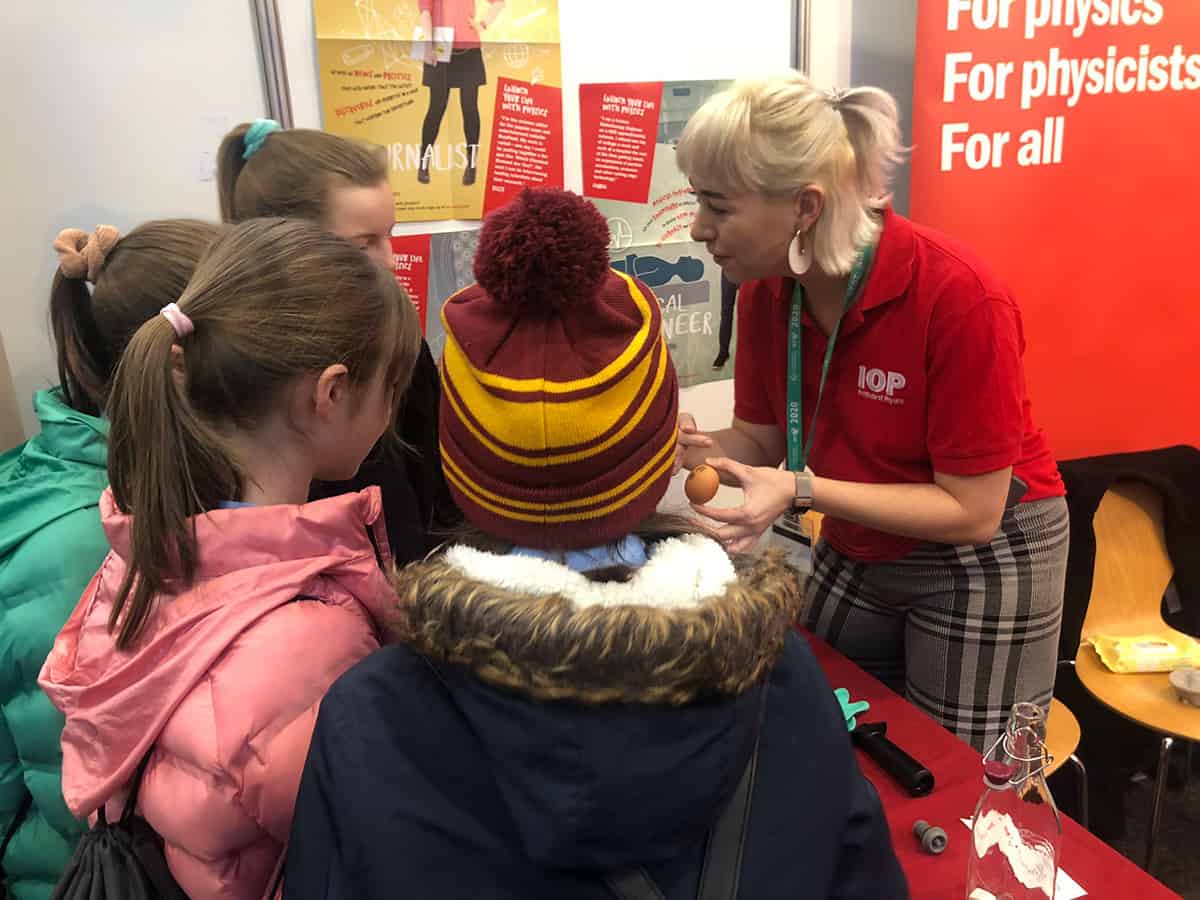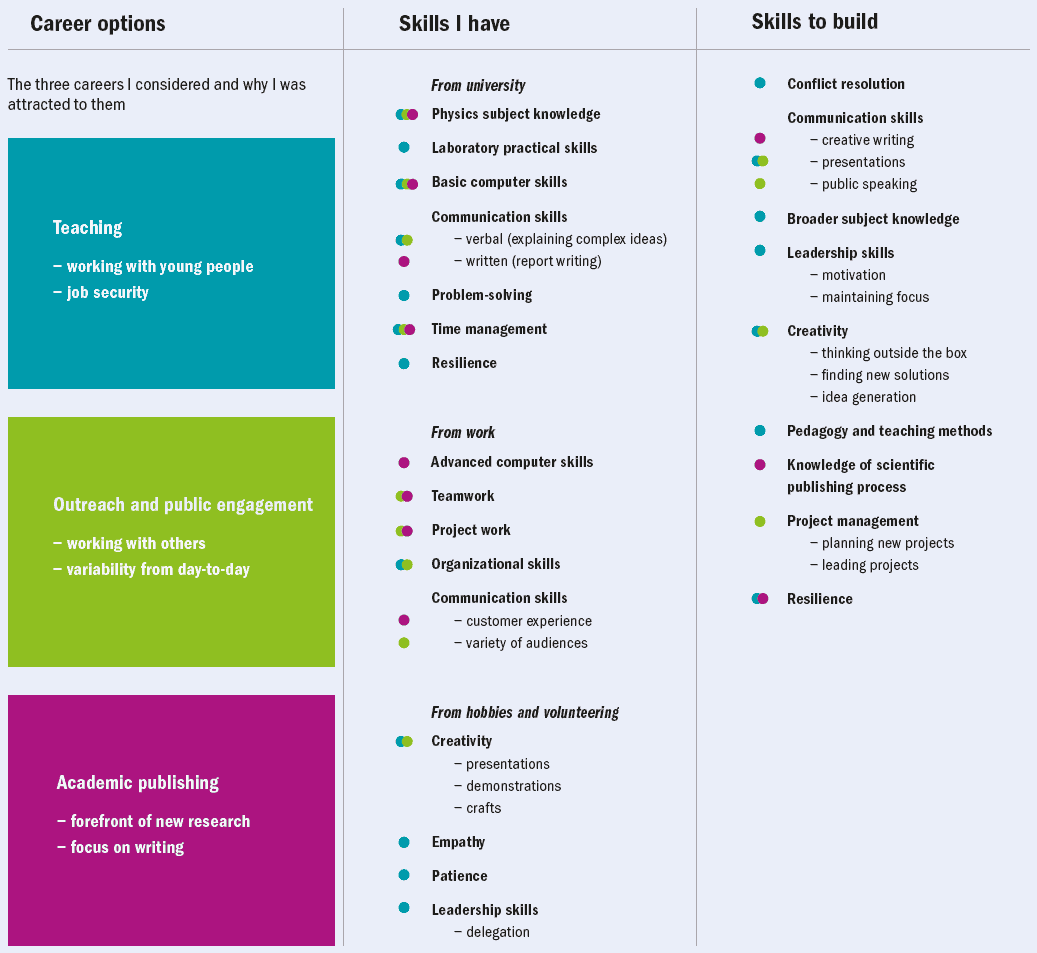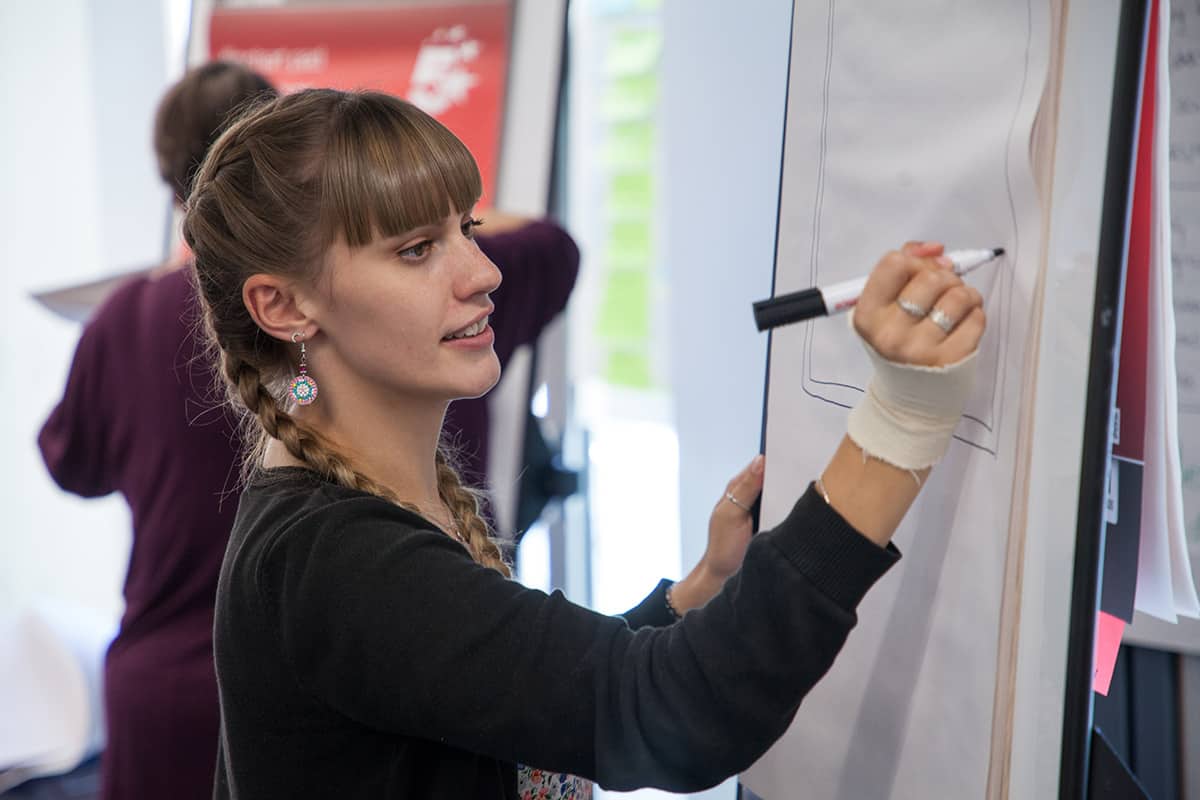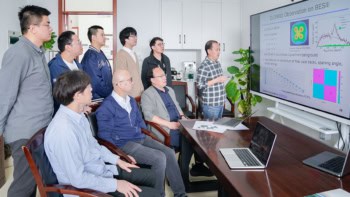Graduate student Rosemary Teague and undergraduate Amber Yallop share their non-traditional degree pathways, some difficult choices they made along the way, and what a future in physics looks like for them now

Rosemary Teague is a trainee teacher on the physics PGCE programme at University College London
“What will you do with a physics degree?” asked my aunts and uncles when I excitedly told them I was going to study the subject at Imperial College in London, as an undergraduate. Well, I thought, I’m going to be a physicist. Back then, my understanding of what a career in physics entailed was not far beyond that of my family – I knew it as an academic pursuit and pictured myself, 30 years on, at the forefront of discoveries in renewable energy. Really, though, I wasn’t thinking that far ahead. I was thinking about the first four years: leaving home, making friends, and learning about the laws of the universe.
And that’s what I did. My undergrad years were filled with lectures, labs and dancing. As a self-proclaimed “country bumpkin” who grew up in Gloucestershire, I took to London life relatively well, making life-long friends and taking every opportunity the city presented. I spent my summer holidays in a similar fashion, either travelling or earning money to travel by teaching at summer camps. I spent my third year in Valencia, Spain, as part of the Erasmus programme, and surprised myself by choosing a computational research project.
At this point I noticed my friends and peers were already considering life after our degrees. We were on a four-year programme, so the upcoming summer was our last chance to get some work experience before applying for graduate jobs. I didn’t spend much time thinking about this myself as I was confident that I wanted to stay in academia, and follow that linear path. So, while my friends were off earning big bucks in the City, I crashed with a school friend for a couple of months and worked in a practical lab at the University of Bristol. While the city and research group were lovely, it confirmed that I’m more suited to a computer than optical mounts.
Always one to be prepared, I started looking into PhD programmes at the beginning of my final year. I soon discovered centres for doctoral training (CDTs), which tend to have a more interdisciplinary focus, and incorporate a Master’s qualification into a full PhD programme. CDTs also complement study with opportunities to develop outreach and other career skills. Among standard PhD applications, I applied to several CDTs including one on the theory and simulation of materials at Imperial. When I accepted this offer, I was excited about both the course and staying in London to take the next step in my personal life by moving in with my partner – he would be starting a more traditional PhD in ultrafast lasers, also at Imperial.
I struggled with impostor syndrome and would work long hours to prove that I deserved the place
Not long after starting the MSc, reality hit and my life started to get a bit less rosy. I struggled with impostor syndrome, as many postgraduate students do, and would work long hours to prove that I deserved the place. I also, crucially, wasn’t giving myself the time or space to grieve a close and unexpected loss in my partner’s family. I started to have panic attacks and increasingly depressive thoughts. Luckily, I have a strong network of family and friends who encouraged me to take a break, despite warnings from the university of the workload that would be waiting on my return. I escaped to my parents’ home, was prescribed antidepressants and arranged to start cognitive behavioural therapy (CBT) sessions back in London. These had an incredible impact and gave me a new perspective on my work–life balance.
I realized how much I hated the pressure and competition around working late and, instead of dismissing advice, I heeded it, making the decision to leave university before starting the PhD part of the course. This was an incredibly tough choice – while easier than if I was on a traditional PhD path, without my MSc graduation as an obtainable “end-point”, it felt like I was giving up, quitting on academia and failing to meet my ambitions.
So what then? I was still living in London and paying rent, so I desperately needed an income. I didn’t have the luxury of time to consider what sort of job I wanted and instead applied for anything and everything I could. A recruiter got in touch via LinkedIn and arranged an interview at Ocado Technology, the online supermarket. Two and a half months after handing in my MSc dissertation, I started working for Ocado as a cloud infrastructure engineer. It was a good job that paid well, but I wasn’t passionate about it and the hour-and-a-quarter commute quickly took its toll.

After six months, in a move that I’m still not sure my parents understood, I sacrificed 30% of my salary for a job in the outreach and engagement department at the Institute of Physics [which publishes Physics World]. This was in May 2019, and it was the right decision for me – I hadn’t been this happy for a long time. More recently I have been considering what it is that I want out of a career. I know that collaborating and working with others is important to me, and whatever I do must be physics-focused.
By assessing my own skills, and thinking critically about what I truly enjoy, I narrowed down my options to a future career in one of three areas: public outreach and engagement; teaching; or academic publishing. Once I considered the skills these roles need and the opportunities they could offer (see graphic above) I realized that for me right now, a career in teaching is the most rewarding path, helping others to see the joys of physics while also developing myself. With this in mind, I applied for teacher training courses, and am incredibly excited as I began my PGCE last month.
By sharing my story, I hope it will show that there are many ways to start a career and that it’s okay to take time for yourself. My path recently has been far from linear and strongly supported by people I love. I am looking forward to seeing how it twists and turns in the years to come.

Amber Yallop is a new trainee on a graduate scheme with MBDA, after completing her BSc in physics at the University of East Anglia, UK
My degree pathway was not the most traditional or straightforward. It began in September 2016 when I left my hometown of Norwich, UK, to follow my dream of a degree in astrophysics, which has always been my specific area of interest. Although I loved my course, I struggled in the first few months, due to some personal circumstances that were further exacerbated by living away from home. By December 2016 I made the very difficult decision to drop out of my course and return home.
At this point I was unsure if I would ever return to higher education. I took a job at a local high school, where I supported students with special educational needs. The role was challenging, but also incredibly rewarding, and I thoroughly enjoyed my seven months at the school. During my time there, however, I heard that a local university – the University of East Anglia (UEA) – was going to launch a new physics degree, starting in September 2017.
I had previously considered teaching as a career, but in my time working at the school I realized that I much preferred working on a personal, one-to-one basis with the students and I wouldn’t get the same level of involvement and intervention as a class teacher. While I loved the job, I still had high aspirations and the physics course at UEA came along at the right time and in the right place. I chose to take the opportunity, and applied to the course. I was offered a place and decided to give university a second attempt, but this time living at home. This worked much better for me and despite further setbacks during my three years, including being diagnosed with epilepsy, I managed to stay on track and obtain a first-class degree.
I decided to give university a second attempt, but this time living at home. This worked much better for me
During my BSc, I volunteered at Institute of Physics outreach events, including a day at the Royal Norfolk Show, demonstrating and explaining hands-on physics experiments to the public, and also took part in the Norwich Science Festival. In my second year at university, I successfully applied to be the IOP campus ambassador for East Anglia. This role massively improved my confidence and organizational skills, including organizing events like a public lecture with BBC Stargazing Live’s Mark Thompson. This was a very popular event with both students and members of the public.
I was also lucky enough to represent East Anglia on the IOP’s Student Community Panel for the final two years of my degree. This involved travelling across the UK and Ireland to meet other regional representatives. We addressed issues facing physics students across the country, and supported the IOP with student events. My proudest achievement in this role was raising over £1000 in sponsorship for PLANCKS 2020, an annual physics competition for students around the world, hosted by the International Association of Physics Students. Each country holds its own preliminary round, with the winning teams progressing to the final competition, which takes place in a different country each year. The 2020 final was scheduled to be held in May in London, but was postponed as a result of COVID-19.
I have recently relocated to Stevenage to begin a “Hardware in the Loop” graduate scheme with the European defence company MBDA. This is a two-year programme with a permanent position on completion. It includes training, development, outreach and extracurricular opportunities. I am looking forward to applying the knowledge and skills learnt through my degree to the workplace, and I’m excited to see where this next chapter of my life will take me.
How the Institute of Physics can help you
- Become a part of a vibrant student community and participate in a host of activities to develop your skills: iop.org/student-community
- Network with physicists through our special interest groups – including our Early Career Members’ Group – and our local nations and branches network: iop.org/groups and iop.org/branches
- Gain an advantage in the job market by attending our career-themed webinars iop.org/events and make use of the IOP Career Development Hub, which will support you in writing your CV, practising for interviews, delivering presentations and effective time management, and providing access to many other useful resources to support your future career choices: iop.org/member-services
- Following graduation, join the Member grade and use the designatory letters MInstP after your name, to demonstrate your commitment and professionalism
- Explore more member benefits at iop.org/member-services or to find out more and join visit iop.org/join



